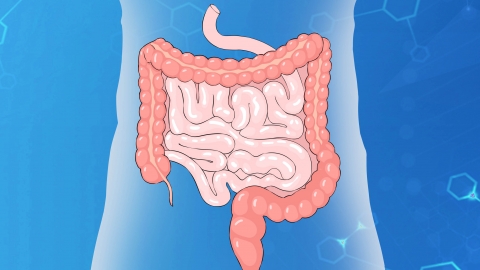What are the symptoms of postoperative intestinal adhesions?
In general, postoperative intestinal adhesions, as a common complication following abdominal surgery, mainly present symptoms such as abdominal pain, bloating, nausea and vomiting, abnormal bowel movements and flatus, and abdominal tenderness. A detailed analysis is as follows:

1. Abdominal pain: Patients often experience paroxysmal abdominal pain, usually located in areas related to the surgical site, with varying intensity—ranging from mild dull ache to severe colicky pain. Pain is commonly triggered or worsened by eating, vigorous activity, or exposure of the abdomen to cold, and may be slightly relieved by rest or gentle abdominal massage.
2. Abdominal distension: The abdomen may become visibly swollen. Patients feel a sense of fullness and discomfort; the abdomen feels firm upon palpation and produces a tympanic sound on percussion. Bloating tends to worsen after consuming gas-producing foods and, in severe cases, may interfere with breathing and sleep.
3. Nausea and vomiting: Some patients experience nausea, which may progress to vomiting in more severe cases. Vomit typically consists of gastric contents; however, if intestinal adhesions lead to bowel obstruction, the vomit may have a fecal odor. The frequency of vomiting correlates with the severity of the condition—the more severe the obstruction, the more frequent the vomiting.
4. Abnormal defecation and flatus: Patients may suffer from difficulty in defecation, dry and hard stools, and prolonged intervals between bowel movements. There may also be reduced flatus or complete cessation of gas passage. In cases of complete intestinal obstruction caused by adhesions, bowel movements and flatus stop entirely, requiring prompt medical intervention.
5. Abdominal tenderness: Upon palpation, patients exhibit significant tenderness at the site of adhesion. In some cases, rebound tenderness may occur when pressure is released, suggesting possible peritoneal irritation due to intestinal inflammation or obstruction.
It is recommended that patients engage in early ambulation after surgery to promote intestinal motility and reduce the risk of adhesions. Daily diet should be light and easily digestible, avoiding overeating and excessive intake of high-fiber foods. Additionally, maintaining abdominal warmth is important to prevent discomfort caused by cold exposure.






